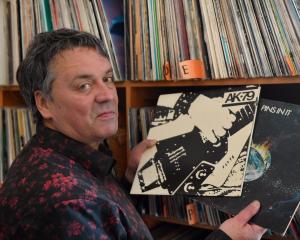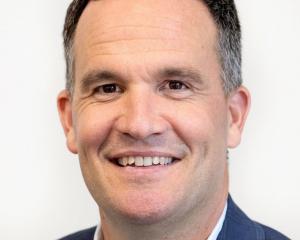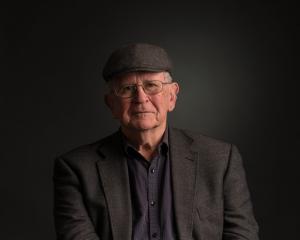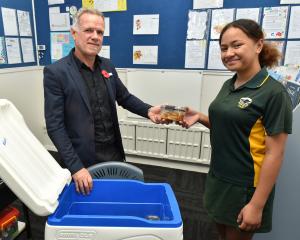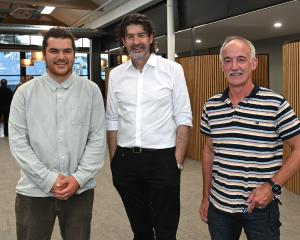Peninsula resident Nick Holmes (29) said a range of synthetic cannabis products had turned him into a monster and he hated the person he had become.
''I'm trying really hard to give it up and I want people to know how dangerous it is. Everyone I know that's under the influence of it say they don't want to be on it and don't like to be on it.''
A sickness beneficiary, he said he had sought advice this week from the Salvation Army about rehabilitation as he battled with his addiction.
It caused him to have a seizure, heart pains, severe palpitations and had made him sweat profusely.
Synthetic cannabis also made him anxious, angry, stressed and paranoid, and cost him up to $60 a day.
He started smoking cannabis regularly in his mid-20s to mask pain. Then, about two years ago when synthetic options became readily available, he switched, thinking it would be a safer and legal alternative.
Others he knew switched to synthetic cannabis to pass drug tests for work.
But synthetic cannabis had far worse mental and physical effects and was more addictive, he said.
''A lot of people I know are now using cannabis to wean themselves off the chemical version. I know people who have tried to go cold turkey and it's been a nightmare.''
Mr Holmes shared his experience to warn others against using the chemical high and to help those in the same situation.
He hoped more services would become available to deal with synthetic cannabis addiction in the community.
Salvation Army Dunedin bridge programme admissions co-ordinator Jeff Leenhouwers said the service had noticed an increase in people presenting for help with synthetic cannabis addiction.
Help was available, but there was a waiting list. Asked if the service was swamped with synthetic cannabis referrals, he said it was not, but he had noticed an increase.
''There is a clear increase in the amount of people who thought by switching to K2 that they would be able to address their cannabis addictions, and actually finding that this is causing far more problems than they expected.
''And, of course, all the latest information coming back confirms people don't really know what they're doing to their brains.''
He had noticed that K2 users were more likely to self-refer to the service than cannabis users.
Withdrawal from K2 tended to be particularly intense, he said.
The bridge programme did not offer an immediate medical detox, for which there were services available in Dunedin, he said.
A 35-year-old man, who declined to be named, said he used first Kronic, and then K2, as a substitute for cannabis. On Mosgiel's main street yesterday, he held a sign calling for a K2 ban.
He used K2 for about a year, after Kronic was banned in 2011. He broke the K2 habit after about a month, and said while his experience was not as severe as some he had heard about, it made him depressed, angry and unmotivated. He feared for younger people using the products, and it was for them he had taken to the street yesterday.
Another former user, who wished to be known only as Amanda, said she was placed in an induced coma in Dunedin Hospital 15 months ago, as a consequence of smoking a product similar to K2.
While she had survived the ordeal, her addiction had come at a price, damaging her memory and job prospects, she said.
''I am not a drinker, nor a smoker of tobacco or marijuana. So, before you get to thinking that I had mixed them with other substances, this is not true.''
It appeared the synthetic cannabis triggered a severe asthma attack, and anaphylactic shock.
''I was put in an induced coma. My parents had to suffer through seeing their only child lying lifeless, with tubes and [intravenous tubes] coming out everywhere.
''The [intensive care unit] team didn't really know what information they could give my parents as they didn't know what exactly was wrong. No-one who was there with me that night told the emergency crews that I had been on [synthetic cannabis].''
Amanda said she was ''extremely lucky'' to have regained consciousness about eight hours after her collapse. After that experience, it took her months to get off the products, which involved a painful and distressing detox. She stopped using them in November last year.
She is urging others not to repeat her mistake.
''I have survived my ordeal, but it has come at a price.
''My memory has massive issues, short-term memory is very shocking, to the point it's embarrassing. Not to mention the social anxieties. It makes it near impossible to go to job interviews.''


